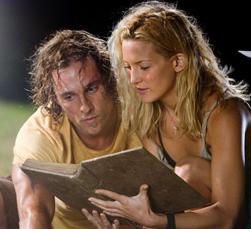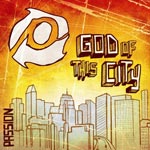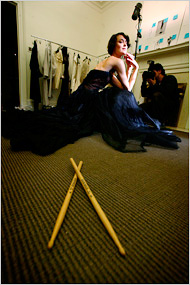 I’m an unabashed devotee of the Religion of Romance, but I must admit, the last year’s cinema offerings (or lack of them) left me a bit spiritually starved. As far as straight-up romance goes, I can’t think of a single picture in 2007 that wowed me or that sticks in my memory as a must-see-again. I hated “P.S. I Love You” (and have no idea why people seemed to like it so much). Steve Carell’s “Dan in Real Life” was cute, actually. And hmmm. No other picture springs to mind as memorable in this genre, unfortunately, save “Waitress” which, though it doesn’t exactly have a romantic relationship happy ending, shows off both Keri Russell and Nathan Fillion as fantastic, charismatic, and funny as romantic leads, and makes my top 10 favorite movies of all time (so it counts a bit, I suppose.)
I’m an unabashed devotee of the Religion of Romance, but I must admit, the last year’s cinema offerings (or lack of them) left me a bit spiritually starved. As far as straight-up romance goes, I can’t think of a single picture in 2007 that wowed me or that sticks in my memory as a must-see-again. I hated “P.S. I Love You” (and have no idea why people seemed to like it so much). Steve Carell’s “Dan in Real Life” was cute, actually. And hmmm. No other picture springs to mind as memorable in this genre, unfortunately, save “Waitress” which, though it doesn’t exactly have a romantic relationship happy ending, shows off both Keri Russell and Nathan Fillion as fantastic, charismatic, and funny as romantic leads, and makes my top 10 favorite movies of all time (so it counts a bit, I suppose.)
New York Times movie critic A.O. Scott agrees that the romance movie genre has seriously suffered of late, and contemplates the latest offerings in comparison to old school gems like “Bringing up Baby” and “His Girl Friday,” in his article “A Fine Romance, My Friend, This Is.”
“How did this genre fall so far, from one that reliably deployed the talents of the movie industry’s best writers, top directors and biggest stars to a source of lazy commercial fodder?” Scott wonders.
Apparently, the February 8th release of the Matthew McConaughey/Kate Hudson romance “Fool’s Gold” inspired (or required) Scott’s ruminations about romance’s downfall. His sarcasm about the movie’s premise–an about-to-divorce married couple find buried treasure and fall back in love–is palpable. (And why wouldn’t it be?)
Overall, Scott diagnoses that there is no real tension between romantic leads these days, accounting for at least one of the problems plagueing the genre.
The actresses are spunky and sweet, but lacking in the vinegar that made Barbara Stanwyck in “The Lady Eve” or Claudette Colbert in “It Happened One Night” so definitively sexy. Those ladies were not always nice, and neither were their gentleman counterparts, who could be sarcastic, brutish and domineering when the mood struck. By contrast, the romantic comedy leading men of today are the kind of nice guy — the Ralph Bellamy type — whom these earlier heroines would have triumphed by rejecting. The vision of love they embraced was not comfort and affirmation but a kind of grand, spirited struggle, what used to be called the battle of the sexes.
Scott even trashes the recent “27 Dresses,” which I know is formulaic, but I still liked it. It was better than most of what we’ve been given lately.
(And OK, I will confess that 2007 wasn’t all a wash either. January 2007’s “The Lake House” has grown on me in its many weekend airings on cable that I catch now and again. It’s embarrassing, but I think I’ve grown to love it, in all its cheesy Sandra Bullock and Keanu Reeves goodness. In the mean time I’ve also survived on the 2005 Keira Knightley remake of “Pride and Prejudice” and the always wonderful Meg Ryan/Tom Hanks combo in “You’ve Got Mail” which top my most-watched romantic comedy Sunday worship list, and are sure-to-make-you-sigh-with-happiness for my fellow romantic believers who are finding themselves lacking in the movie-romance department these days.)
And though “Fool’s Gold” looks rather silly and dreadful, I will be there for Friday afternoon cinema-services come its release February 8th, since I need to get my fix somehow, however spiritually unfulfilling. At least it’s better than nothing, right? Then again…


